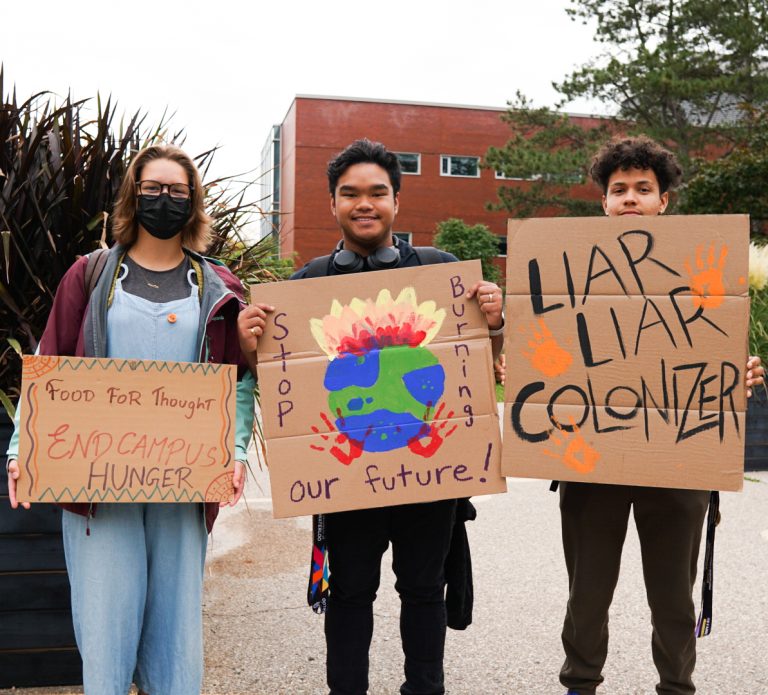The planet is literally burning, but it is still business as usual at the University of Waterloo (UW).
The climate crisis is undeniably upon us and will affect every aspect of our lives. While it will hit vulnerable populations first and worst, none of us can escape its impacts—from wildfires to heat domes to flooding.
As a student leader, I have seen firsthand the rising fear and anxiety my peers experience regarding the present realities and future of our communities and the planet.
We are students, but we are people first and foremost. Many of us are international students, refugees or immigrants whose families, homes and ancestral lands are in the Global South.
For us, climate change is not an abstract issue: it is already directly impacting us and our loved ones.
However, the pervading attitude on campus is that climate change is an issue that is out of sight, out of mind.
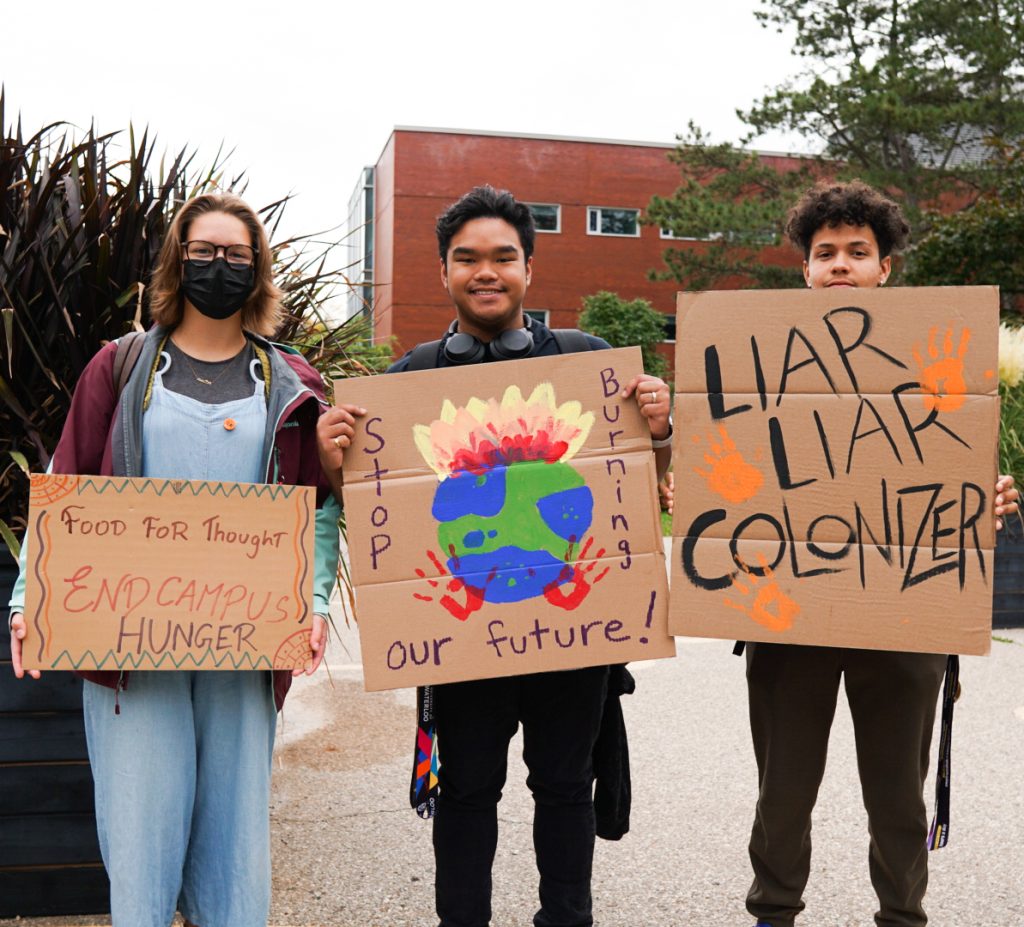
In September 2019, as part of the Global Youth Strikes for Climate, more than 4,000 people gathered in Waterloo Square to call for climate action.
Four years have passed, but UW has yet to seriously centre student needs in the face of the climate crisis, the rising cost of living, increasing tuition, safety in the face of increasingly polarized violence and international student precarity.
In the vacuum left by the pandemic and the lack of strong institutional voices to advocate for student needs, I and my co-lead organizer, Celine Isimbi, stepped up. Over the summer, we convened an independent coalition of undergraduate and graduate students under the banner of climate justice.
We collectively understand that the climate crisis is a pressing existential threat that intersects with all other forms of injustice. The UW Climate Justice Ecosystem (CJE) is working to build and mobilize student power for an intersectional grassroots movement towards a sustainable, just, and resilient UW for everyone.
We built our group from the ground up by approaching people we knew in the few active pockets of advocacy left on campus. We reached out to a broad range of people, intentionally drawing connections between the climate crisis and economic justice, anti-racism, and queer liberation, among other causes.
Slowly but surely, we began to gather interested students, all of us united by a sense of fear and rage at UW’s inaction on key issues.
Today, we have representation from across the faculties and disciplines at UW, and our core group of organizers brings valuable expertise from the realms of environmental, labour and social justice.
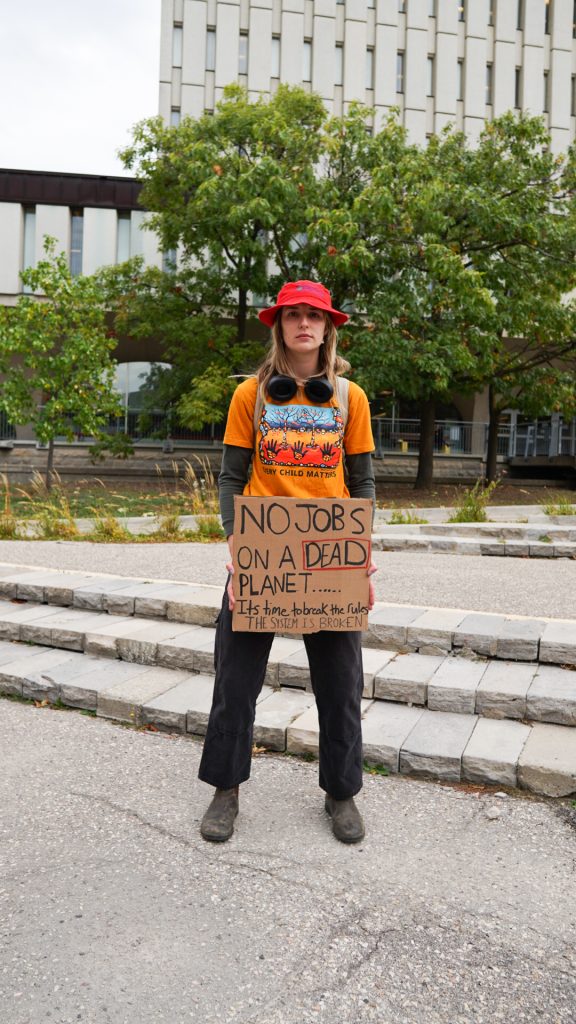
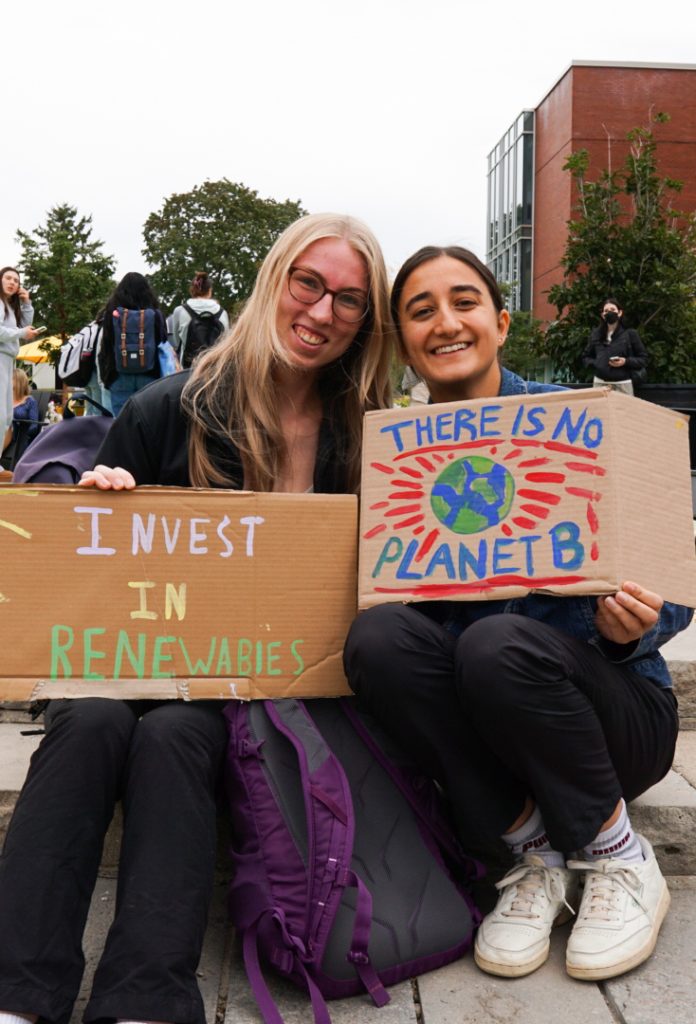
We have been hard at work writing an open letter, a public manifesto of our group’s core demands. These are intersectional, but rooted in climate justice: the belief that the climate crisis is not an amoral nor apolitical issue, and it is something that must be tackled with an equity and justice lens.
We have woven our diverse perspectives into this document, and we write with a clarity and urgency that we believe is so lacking at UW.
The document outlines the following demands:
1. Accelerated and decisive action on the climate crisis
2. Secure, safe, unionized jobs with livable wages
3. Affordable and accessible housing
4. Universal and comprehensive mental and physical healthcare
5. Fair tuition and equal opportunities for out-of-province and international students
6. An end to hunger on campus
7. Indigenous sovereignty and land back
8. Investments in transparent community-led safety initiatives instead of policing
9. Liberation, equality and inclusion for all by dismantling all systems of oppression (such as homophobia, transphobia, ableism, sexism and racism)
10. Reliable and convenient transit to and from Waterloo
Our ten demands are not exhaustive by any means; they are a snapshot of the most material issues that students face, from the climate and housing crises, to rising unaffordability, to the lack of mental healthcare, to growing hate and the threat of violence directed at our most marginalized peers.
In the wake of the hate-motivated June 28th attack, we were all reminded that UW will not keep us safe: it is our responsibility to build a culture of care that can mobilize and respond to protect each other.
On Sept. 25, we sent this open letter to senior leadership and other decision makers, along with 200 signatures and six group endorsements from the campus and community.
The recipients will be sent a strong message that their complacency and negligence will no longer be tolerated by their largest and most influential stakeholder group: the student body.
On Sept.28, we hosted a climate justice rally in the Arts Quad on UW campus to mobilize students around our demands. We had around 150 attendees—students, staff, faculty and community members join us to learn about the tenets of climate justice.
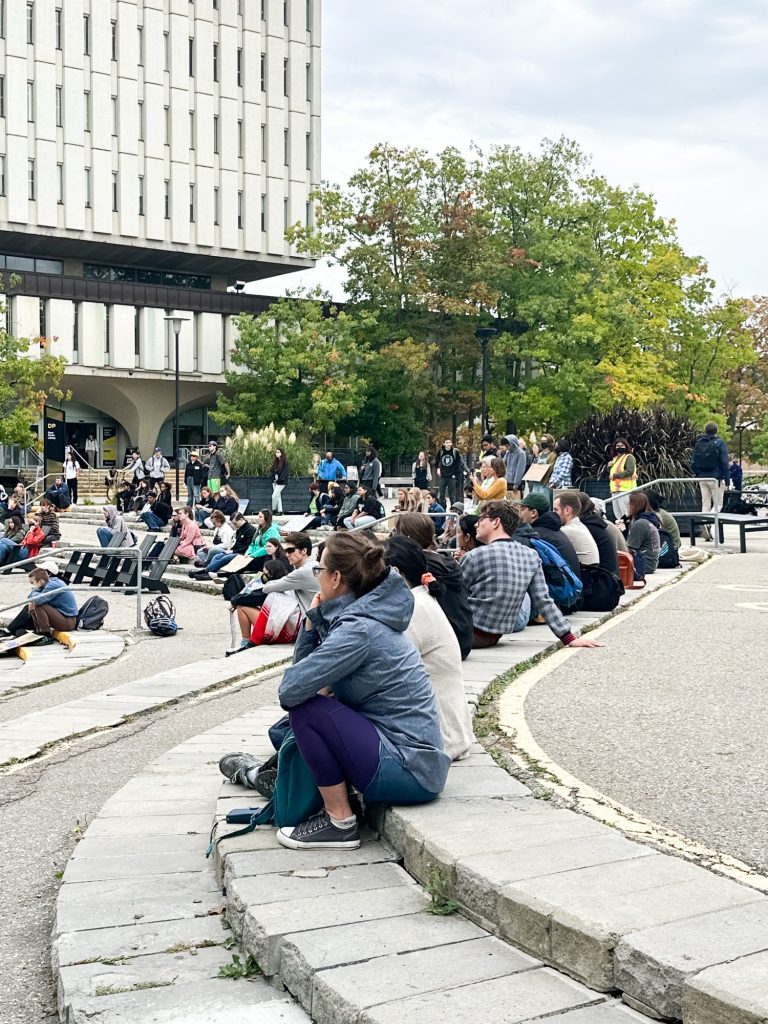
Our dynamic lineup of student speakers shared their lived experiences and expertise on the climate crisis, affordability, Indigenous student wellbeing, international student issues, liberation and equity and mental health.
The speakers spoke with clarity and urgency about the issues at hand, activating attendees to join the movement to build student power.
There is so much to mourn in the deepening climate crisis, but this summer has proven to me how much hope and power we can build when we come together.
We know that this is a good fight, but a long one. While there is so much work to be done, it is high time we rolled up our sleeves and got started again.

